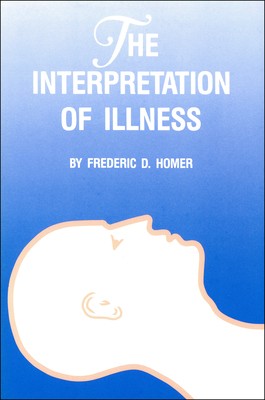
- We will send in 10–14 business days.
- Author: Frederic D Homer
- Publisher: Purdue University Press
- ISBN-10: 0911198881
- ISBN-13: 9780911198881
- Format: 15.4 x 23 x 1.5 cm, minkšti viršeliai
- Language: English
- SAVE -10% with code: EXTRA
Reviews
Description
Georg Groddeck (1866-1934), who was trained as a physician but became famous for his success as a healer, introduced a radical concept in The Book of It: that we virtually always cause our own illness and injury; therefore, we can cure and avoid both. Groddeck utilized the technique of psychoanalysis--which had just been invented by Freud--to communicate with the source of the illness, which he called the "the it" (or the map of the psyche). He believed the "it" had the power to cure illness as well as cause it. Perhaps science is catching up with Groddeck's notion, for modern currents in medicine suggest there is a linkage between the way we live, the way we think, and illness. Readings in behavioral medicine indicate that we do have control over our immune system; and empirical studies of behavior show a strong relationship between stress and illness. In The Interpretation of Illness, Homer goes beyond Groddeck's initial insight to emphasize that illness is a communication to others, especially a call for sympathy. No one consciously likes to be sick or hurt; but we all, consciously or unconsciously, tell others about our ills, expecting them to extend sympathy. Homer argues that if we change this pattern of communication - either by learning to forego sympathy or by gaining it in less destructive ways--we can prevent illness or alleviate existing symptoms. The change in communication involves expressing ourselves knowingly and deliberately to others. Interpretation is a series of letters from Homer, writing under the persona Augie, to a friend. Appropriately enough, this style is similar to the format used by Groddeck in The Book of the It.
EXTRA 10 % discount with code: EXTRA
The promotion ends in 22d.15:09:37
The discount code is valid when purchasing from 10 €. Discounts do not stack.
- Author: Frederic D Homer
- Publisher: Purdue University Press
- ISBN-10: 0911198881
- ISBN-13: 9780911198881
- Format: 15.4 x 23 x 1.5 cm, minkšti viršeliai
- Language: English English
Georg Groddeck (1866-1934), who was trained as a physician but became famous for his success as a healer, introduced a radical concept in The Book of It: that we virtually always cause our own illness and injury; therefore, we can cure and avoid both. Groddeck utilized the technique of psychoanalysis--which had just been invented by Freud--to communicate with the source of the illness, which he called the "the it" (or the map of the psyche). He believed the "it" had the power to cure illness as well as cause it. Perhaps science is catching up with Groddeck's notion, for modern currents in medicine suggest there is a linkage between the way we live, the way we think, and illness. Readings in behavioral medicine indicate that we do have control over our immune system; and empirical studies of behavior show a strong relationship between stress and illness. In The Interpretation of Illness, Homer goes beyond Groddeck's initial insight to emphasize that illness is a communication to others, especially a call for sympathy. No one consciously likes to be sick or hurt; but we all, consciously or unconsciously, tell others about our ills, expecting them to extend sympathy. Homer argues that if we change this pattern of communication - either by learning to forego sympathy or by gaining it in less destructive ways--we can prevent illness or alleviate existing symptoms. The change in communication involves expressing ourselves knowingly and deliberately to others. Interpretation is a series of letters from Homer, writing under the persona Augie, to a friend. Appropriately enough, this style is similar to the format used by Groddeck in The Book of the It.


Reviews